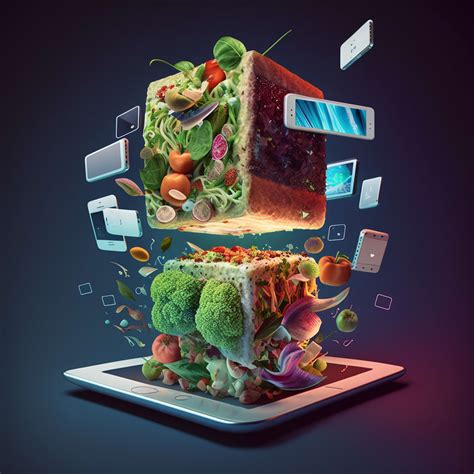The food industry is on the cusp of a revolution, and Future Food Tech New York is at the forefront of this transformation. As consumers become increasingly health-conscious and environmentally aware, the demand for sustainable, nutritious, and technologically advanced food products is skyrocketing. In this article, we'll explore the latest innovations shaping the menu and what you can expect from the future of food.
Food technology is not just about processing and packaging; it's about creating a better food system that benefits both people and the planet. From alternative proteins to personalized nutrition, we're witnessing a seismic shift in the way food is produced, distributed, and consumed. Future Food Tech New York is a hub for innovators, investors, and industry leaders to come together and share ideas, collaborate, and shape the future of food.
Alternative Proteins: The Rise of Plant-Based and Lab-Grown Meat

Traditional livestock farming is a significant contributor to greenhouse gas emissions, deforestation, and water pollution. Alternative proteins offer a more sustainable solution, and companies like Beyond Meat and Impossible Foods are leading the charge. Plant-based protein sources like pea protein, rice protein, and lentil protein are becoming increasingly popular, while lab-grown meat is gaining traction as a cruelty-free and environmentally friendly option.
Benefits of Alternative Proteins
• Reduced greenhouse gas emissions • Lower water usage • Less land required for production • Improved animal welfare • Increased food safety
Personalized Nutrition: Tailoring Food to Your DNA

With the rise of DNA testing and gene editing, personalized nutrition is becoming a reality. Companies like Habit and DNAfit are using genetic data to create tailored nutrition plans that cater to an individual's unique needs. This approach can help prevent chronic diseases, improve digestion, and boost energy levels.
How Personalized Nutrition Works
- DNA testing: A simple saliva test or cheek swab reveals your genetic profile.
- Data analysis: Sophisticated algorithms analyze your genetic data to identify nutritional strengths and weaknesses.
- Personalized recommendations: A customized nutrition plan is created, taking into account your genetic predispositions and health goals.
Vertical Farming: The Future of Sustainable Agriculture

Vertical farming is a game-changer for sustainable agriculture. By growing crops in vertically stacked layers, often in indoor environments, farmers can increase yields while reducing water usage, land requirements, and environmental impact. Companies like AeroFarms and Bright Agrotech are pioneering this technology, which can be used to grow a wide range of crops, from leafy greens to strawberries.
Benefits of Vertical Farming
• Increased crop yields • Reduced water usage • Lower land requirements • Improved crop quality • Reduced environmental impact
Food Waste Reduction: Closing the Loop

Food waste is a significant problem worldwide, with an estimated one-third of all food produced globally being lost or wasted. Companies like Full Harvest and FoodMaven are working to reduce food waste by creating platforms that connect farmers with buyers, reducing the amount of unsold produce that ends up in landfills.
Strategies for Reducing Food Waste
• Food recovery: Recovering surplus food from farms, manufacturers, and retailers. • Food redistribution: Redirecting recovered food to those in need. • Food recycling: Converting food waste into nutrient-rich products like compost or animal feed.
Robotics and Automation: Streamlining Food Production

Robotics and automation are transforming the food industry, from harvesting and processing to packaging and distribution. Companies like Harvest CROO Robotics and Soft Robotics are developing innovative solutions that improve efficiency, reduce labor costs, and enhance food safety.
Benefits of Robotics and Automation in Food Production
• Increased efficiency • Reduced labor costs • Improved food safety • Enhanced product quality • Increased productivity






The future of food is exciting, and it's clear that innovation will play a key role in shaping the menu. From alternative proteins to personalized nutrition, vertical farming to food waste reduction, and robotics and automation, the possibilities are endless. As consumers, we have the power to drive change and demand better, more sustainable food options. Join the conversation and be a part of the food revolution!
What is the future of food technology?
+The future of food technology is focused on creating a more sustainable, nutritious, and technologically advanced food system. This includes innovations like alternative proteins, personalized nutrition, vertical farming, and robotics and automation.
How can I reduce my environmental impact through food choices?
+You can reduce your environmental impact through food choices by opting for plant-based protein sources, reducing food waste, choosing locally sourced and seasonal produce, and supporting sustainable agriculture practices.
What is personalized nutrition, and how does it work?
+Personalized nutrition is a tailored approach to nutrition that takes into account an individual's unique genetic profile, health goals, and lifestyle. It involves DNA testing, data analysis, and customized dietary recommendations to optimize health and well-being.
